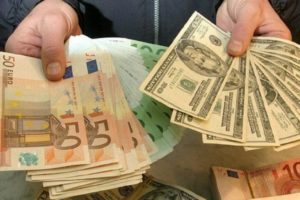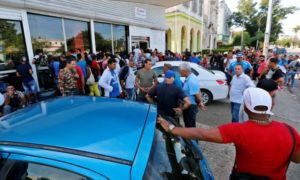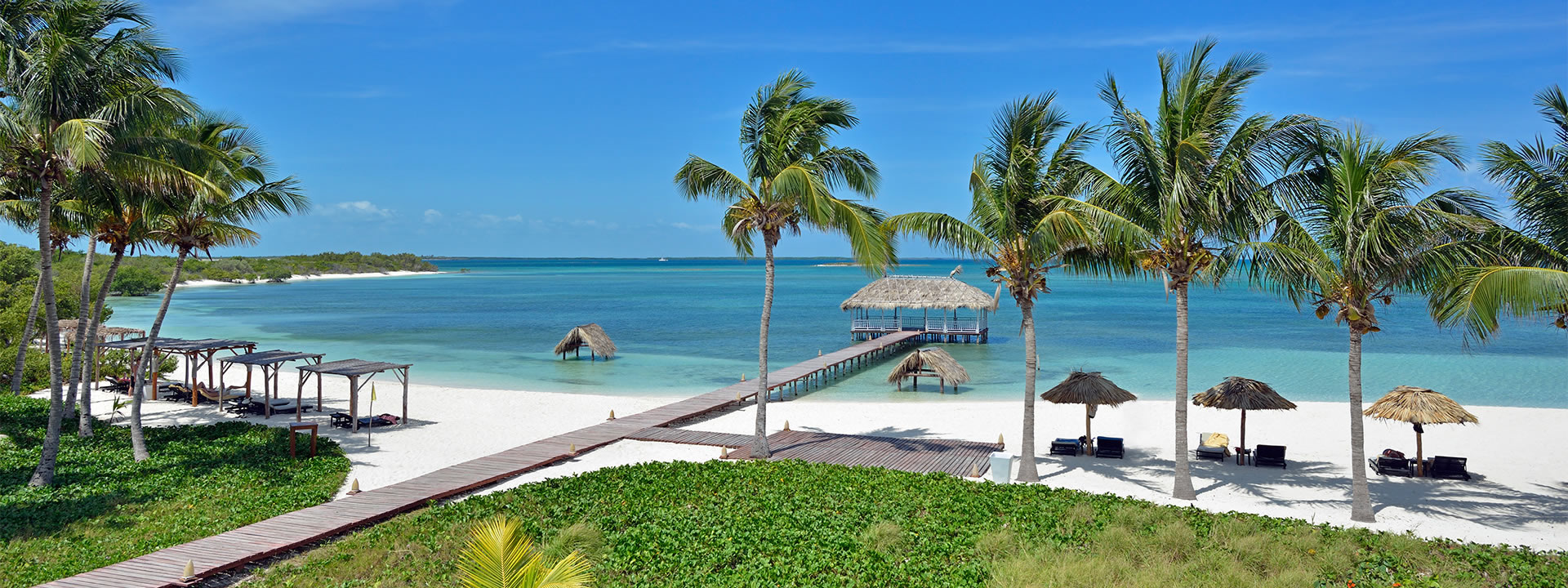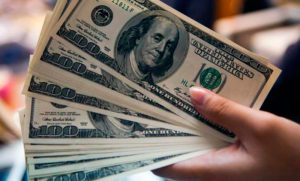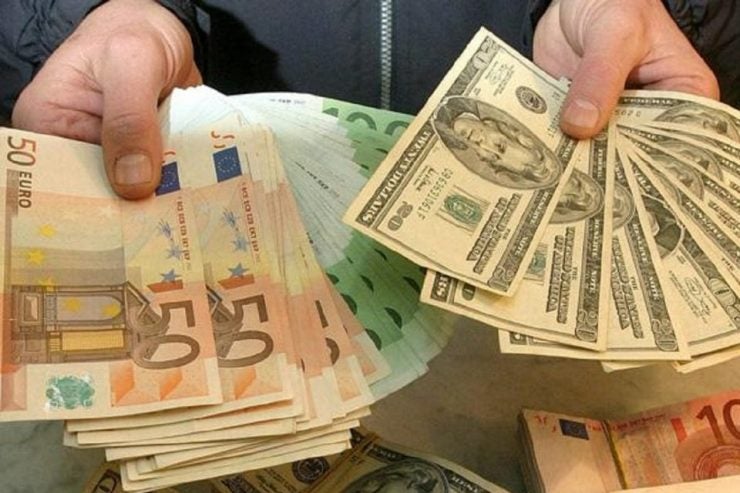 CUBA POR DENTRO: COMPRA Y VENTA DE “DOLARES”. NUEVO NEGOCIO PARA LAS “MULAS”.
CUBA POR DENTRO: COMPRA Y VENTA DE “DOLARES”. NUEVO NEGOCIO PARA LAS “MULAS”.
hace más de cinco años, los hermanos Luis y Jorge, vecinos de la barriada habanera La Timaba, se han dedicado a la compraventa de dólares “desde la tranquilidad de la casa”. Con una clientela fija de estudiantes, que consiguieron a través de una conexión en la Escuela Latinoamericana de Medicina, iniciaron un negocio “que a todo el mundo le conviene”.
“Por eso nunca hemos tenido problemas con los chivatos del barrio”, aseguró Jorge Ángel.
“Los estudiantes latinoamericanos de Medicina descubrieron hace años que era más negocio comprar dólares en la calle que al Estado cubano. Las CADECA (Casas de Cambio) se los compran barato y se los venden muy caro”.
La tasa de cambio actual para el dólar estadounidense “es desigual”, coincidió Luis Carlos con el criterio generalizado entre los habaneros. Las CADECA compran el dólar a 0,97 —menos el 10% de impuesto sobre la moneda y el 3% de comisión— y lo venden a 1,027.
“Con el auge del negocio de las ‘mulas’, la compra del dólar en el mercado negro se disparó de 0,95 a 1,00 y mucho antes de que anunciaran que volvería a circular legalmente ya se estaba cotizando en las calles a 1,13. Hay rumores de que fuera de La Habana llegó a 2,00”, comentó Luis Carlos.
Tras los anuncios del Gobierno cubano de que al menos 70 tiendas en toda la Isla comenzaría a vender efectos electrodomésticos, motos eléctricas, piezas de automóviles y otros productos directamente en dólares —y en otras nueve monedas extranjeras—, las especulaciones y largas colas en las sucursales de Banco Metropolitano se dispararon.
El servicio solo se ofrecerá mediante tarjeta magnética, por lo cual los cubanos tendrán que habilitar una cuenta bancaria en dólares estadounidenses. Esta es una medida que, según el vicepresidente del país, Salvador Valdés Mesa, forma parte de una iniciativa para impulsar la economía cubana.
Durante los últimos años, explicó el vicepresidente, se ha incrementado la importación, por parte de personas naturales, de mercancías sin carácter comercial, y “aunque los bienes entran al país en un marco de legalidad, después de recepcionarlos se comercializan de manera irregular”, dijo Valdés Mesa.
“El Gobierno quiere ser intermediario a la fuerza”, consideró Maritza Llánez, quien desde hace tres años se dedica a comprar productos en México y Panamá para llevarlos a la Isla.
“Quiere ocuparse [el Gobierno] de todo. Fíjate que acepta que la mercancía entra al país de forma legal y, por otra parte, no utiliza el término ilegal para referirse a un mercado que abastece de determinados productos y bienes que el Estado o no ofrece o vende excesivamente caro”, cuestionó Llánez.
“Aunque aseguraron que no habría ningún cambio en las regulaciones aduaneras, no puedes confiar en el Gobierno, que tampoco se ha pronunciado sobre sí desmantelará la red de negocios que proliferan al margen del Estado”, apuntó su esposo, Daniel Orlando Guevara.
“Porque sin dudas, esto es un golpe directo al sector privado del país, y en menor medida a la población. De cualquier manera, están fomentando el mercado negro, pues las personas que reciben remesas desde países donde circula el dólar los cambiaran a CUC en las calles y no en las CADECA. “Ahora volverá a subir como la espuma otro tipo de ‘mula’, personas que traen los dólares directamente en efectivo. La mayoría de las personas que reciben la remesa por esta vía alternativa, acumularán los dólares hasta que se disparen sus precios en la calle”, vaticinó Matamoros, asegurando que ya tiene “amarrado” el negocio con cubanos que reciben remesas de Estados Unidos.
Un recorrido por varias sucursales del Banco Metropolitano arrojó que la mayoría de los clientes que acuden a solicitar la cuenta bancaria en dólares están motivados por “legalizar” esa divisa ante posibles viajes; muy pocos van con la intención de adquirir la tarjeta magnética para comprar en la red de tiendas del Estado.
“En el caso de que los productos tengan precios razonables, compraría en una de esas tiendas del Estado, de lo contrario seguiré negociando con las mulas o viajaré yo personalmente”, dijo María del Carmen, dueña de un restaurante privado.
“De momento abriré la cuenta en dólares, pero no me interesa la tarjeta magnética porque no pienso someterme a los precios explotadores del Gobierno. La entrada de dólares no tengo problemas en justificarla pues dos de mis tres hijos viven en Estados Unidos”.
“De ponerse muy complicado todo, tendría como negocio alternativo la venta de los dólares que mis hijos me envían”, concluyó María del Carmen.
SPONSORS
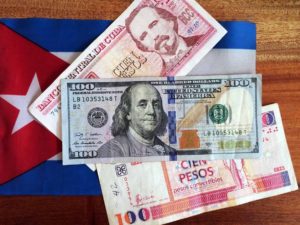 CUBA INSIDE: PURCHASE AND SALE OF “DOLLARS”. FAVORABLE NEW BUSINESS FOR THE “MULAS”.
CUBA INSIDE: PURCHASE AND SALE OF “DOLLARS”. FAVORABLE NEW BUSINESS FOR THE “MULAS”.
For more than five years, the brothers Luis and Jorge, neighbors of the Havana neighborhood La Timba, have been dedicated to the sale of dollars “from the tranquility of the house.” With a fixed clientele of students, which they got through a connection at the Latin American School of Medicine, they started a business “that suits everyone”.
“That is why we have never had problems with the neighborhood sneaks,” Jorge Angel said.
“Latin American medical students discovered years ago that it was more business to buy dollars on the street than the Cuban State. CADECA (Exchange Houses) buy them cheaply and sell them very expensive.”
The current exchange rate for the US dollar “is unequal,” Luis Carlos agreed with the general criteria among Havanans. CADECA buys the dollar at 0.97 – less 10% currency tax and 3% commission – and sells it at 1,027.
“With the boom in the business of the ‘mules’, the purchase of the dollar in the black market skyrocketed from 0.95 to 1.00 and long before they announced that it would circulate legally it was already quoting on the streets at 1, 13. There are rumors that outside of Havana it reached 2.00, “said Luis Carlos.
After the announcements of the Cuban Government that at least 70 stores throughout the Island would start selling household appliances, electric motorcycles, auto parts, and other products directly in dollars – and in nine other foreign currencies -, speculations and long lines in the Banco Metropolitano branches skyrocketed.
The service will only be offered by a magnetic card, so Cubans will have to enable a bank account in US dollars. This is a measure that, according to the country’s vice president, Salvador Valdés Mesa, is part of an initiative to boost the Cuban economy.
During the last years, the vice president explained, the importation, by natural persons, of non-commercial merchandise has increased, and “although the goods enter the country in a legal framework, after receiving them they are marketed irregularly” said Valdés Mesa.
“The Government wants to be an intermediary by force,” said Maritza Llánez, who has been buying products in Mexico and Panama for three years to take them to the Island.
“He wants to take care of [the Government] of everything. Notice that he accepts that the merchandise enters the country legally and, on the other hand, does not use the illegal term to refer to a market that supplies certain products and goods that the State or not offers or sells excessively expensive, “Llánez questioned.
“Although they said there would be no change in customs regulations, you cannot trust the Government, which has not ruled on itself will dismantle the network of businesses that proliferate outside the State,” said her husband, Daniel Orlando Guevara.
“Because without a doubt, this is a direct blow to the private sector of the country, and to a lesser extent to the population. In any case, they are promoting the black market, because people who receive remittances from countries where the dollar circulates will change them to CUC in the streets and not in CADECA. “Now another type of ‘mule’ will rise again like foam, people who bring dollars directly in cash. Most of the people who receive the remittance through this alternative route will accumulate the dollars until their prices in the street soar, “Matamoros predicted, ensuring that the business with Cubans receiving remittances from the United States is already” tied up. ”
A tour of several branches of the Metropolitan Bank showed that the majority of customers who come to request the bank account in dollars are motivated to “legalize” that currency against possible trips; Very few go with the intention of acquiring the magnetic card to buy in the network of state stores.
“In the event that the products are reasonably priced, I would buy from one of those state stores, otherwise I will continue to negotiate with the mules or travel personally,” said Maria del Carmen, owner of a private restaurant.
“At the moment I will open the account in dollars, but I am not interested in the magnetic card because I do not intend to submit to the exploitative prices of the Government. The entrance of dollars I have no problem in justifying it because two of my three children live in the United States.”
“If everything gets very complicated, I would have as an alternative business the sale of the dollars that my children send me,” María del Carmen concluded.
Agencies/ DDC/ Jorge E. Rodriguez/ Extractos/ Excerpts/ Internet Photos/ Arnoldo Varona/ www.TheCubanHistory.
THE CUBAN HISTORY, HOLLYWOOD.



